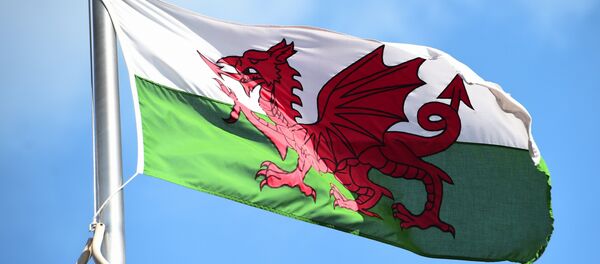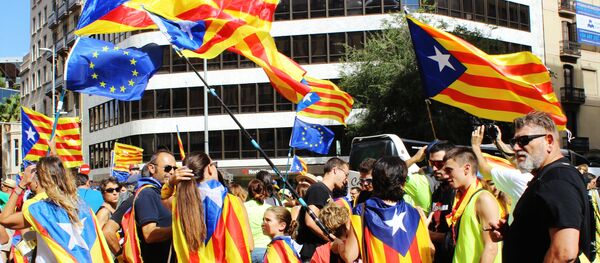"There is no discontent over Spain as such in Catalonia. People are specifically against the ruling People's Party (Partido Popular, PP), which has been in power since 2011," Pacheco i Canals, President of the Official Association of Political Scientists and Sociologists of Catalonia, told Sputnik Mundo.
He explained that Spain’s ruling party has no electoral base in Catalonia, very few people in the region support it. Because of this, the party fails to react to the needs and demands of the residents’ therefore prompting resentment against the entire country.
"Madrid still has not understood that that the movement for autonomy is not an invention of the Catalan government, the Generalitat, but the will of people, who force it to respond," Pacheco said.
However, he continued, the central government prefers to believe that the Generalitat is the origin of the sovereign ideas and that could stop this movement by simply eradicating the regional government.
The more the Spanish government tries to prevent the vote, he elaborated, the more importance it acquires. If the number of "yes" votes reaches at least half of those who cast ballots at the last elections into the Catalan parliament (2,100,000 people), the referendum will become legitimate, he said. In the current situation it is of special importance, given that the referendum has no other guarantees.
Jordi Pacheco i Canals however did not rule out that in the remaining days the country's Civil Guard (la Guardia Civil, Spanish law enforcement agency) could arrest the President of Catalan Generalitat, Carles Puigdemont. The ability of Catalans to vote directly depends on the country's police forces, which have been deployed to the region.
The region already had a similar poll in November 2014. Then the residents were asked two questions: "Do you want Catalonia to become a State?" and "Do you want this State to be independent?" The second question could only be answered by those who had answered Yes to the first one.
80.8% of the cast votes then supported the Yes–Yes option. The voting, however, had no political consequences at the time.



